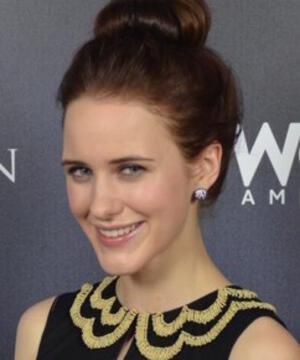The Marvelous Concept of Imperfection
My mother is an avid recommender. She sends me articles and book titles, offers topics to blog about—she even suggested I see Hamilton with my grandma when it first opened on Broadway (before it got super popular). Unfortunately, more often than not I just roll my eyes and ignore these recommendations (as us teenagers often do), and so I have yet to see Hamilton. In the spirit of not making the same mistake twice, I didn’t ignore her when she told me to watch The Marvelous Mrs. Maisel.
I quickly finished my second viewing of Friends and settled in on my couch one Saturday morning in January. I wasn’t sure what to expect; I knew little about the show except that it was set in New York City after World War II, and that it had a Jewish element. I wasn’t prepared for the bustling world of Midge Maisel to which I was soon transported.
The show begins with Midge’s husband, Joel, leaving her. Despite Joel’s failure in comedy, Midge accidentally ventures into the industry, only to be met with instant success. The season follows her journey out of married life and into comedy.
I really enjoyed the show from the beginning, but it wasn’t until the third episode that I identified Midge as a feminist. She was arrested for public indecency after a particularly raunchy comedy set she performed, and had to appear in court. As the judge is about to let Midge off pretty easy, he comments that she’s “certainly packaged right,” sending Midge off on a rant. She points out that when a woman curses, it’s unladylike and illegal, but men can do it openly and loudly over lunch. This is her first overt acknowledgement of the double standard so pervasive at that time (and one could argue still, today). Midge was always headstrong, but seemed oblivious to the sexism so present in her world up until this point. Maybe it was her outspoken lawyer, or the blatant nature of the judge’s comments; whatever it was, Midge acted. To me, this moment makes her a feminist because she was presented with injustice, and chose action instead of complacency, something that requires the bravery and passion of a true activist.
From this point on, Midge continues to bluntly question the hypocrisy of the world around her. When she’s thrown onto the podium at a protest in Washington Square Park, she takes the opportunity to voice her opinions. She shares that she thinks there are newspaper advertisements that are simply meant to distract women, because men know that if women actually read the paper, they’d be able to solve the issues immediately! I see this as another turning point in Midge’s feminist identity. She realizes that even though she was previously apprehended by the judge for her rant, there is a place where her voice will be well-received.
This is something that especially resonated with me, as finding an audience for my voice was a huge catalyst in my feminist identity. For a long time, my activism was very subdued, expressed only in reading article upon article, and the occasional passionate discussion with my mom. However, as I got older I was lucky enough to find friends in all corners of my life who were just as impassioned as myself, allowing us all to find strength in our shared feminism.
Like most of us, though, Midge isn’t perfect. In an early episode, we see Midge wait until her husband falls asleep to take off her makeup and put her hair up, leaving the shade open so that she can wake up before he does to put the makeup back on. The whole question of makeup as a feminist or anti-feminist entity is one my parents and I often debate. Most recently, my dad asked my mom and I what we thought about the fact that Lindsey Vonn was clearly very dolled up for her post-race interviews. My mom replied that it bothered her, citing Serena Williams as another example of the same phenomenon. She argues that seeing these strong women in makeup takes away from what truly makes them impressive – not beauty, but talent. However, I argue that being a feminist neither means wearing makeup nor refusing to go into a Sephora—it means having the choice to do either.
Midge’s imperfection also brings up an important issue within the feminist movement. There is a culture of perfection in feminist circles, one that is often toxic. Make one comment that is received poorly, and you are blacklisted. It can be a very intense and judgemental environment, one that often turns into a competition with everyone trying to prove that their activism is better than everyone else's. However, Midge represents the reality that most of us are not perfect activists. We may have our own insecurities and blind spots; we may not pay enough attention to some issues compared to others, or we may say something offensive without even realizing it. Midge serves as a relatable figure in a culture where small mistakes are so harshly punished.
The Marvelous Mrs. Maisel is just that—marvelous. Although the styles might be dated, the messages most certainly are not. Midge embodies a particular shade of feminist that’s rarely seen, yet is the reality for many. Her insecurity that manifests as habitual and almost second nature, juxtaposed with her curiosity about the world around her and her drive to change it, create a complex combination of inspiring and relatable in an incredibly seamless fashion. Let’s all strive to be both a little bit more, and a little bit less, like Midge.
This piece was written as part of JWA’s Rising Voices Fellowship.








Good work!